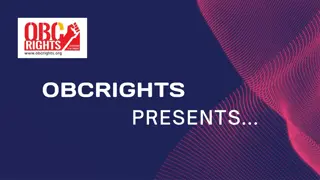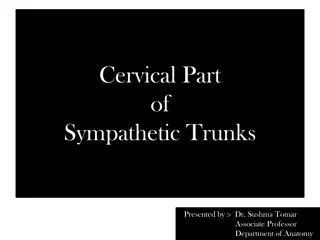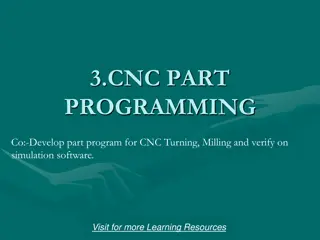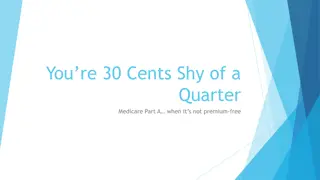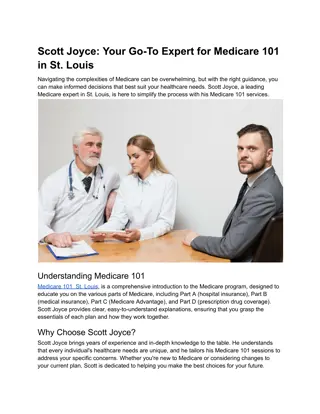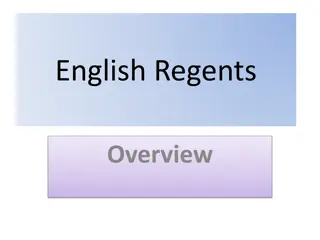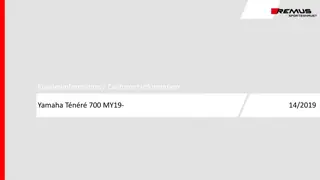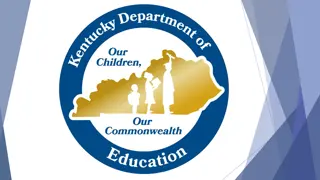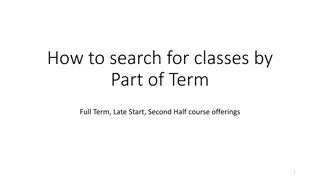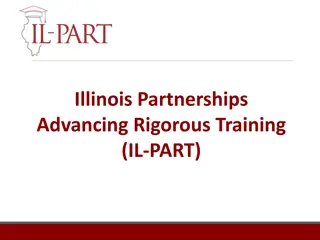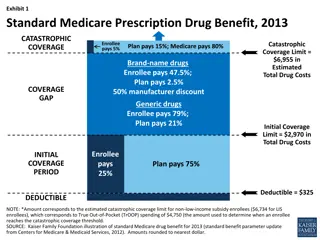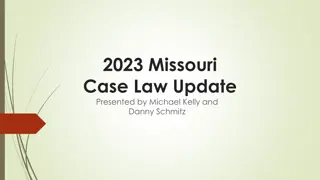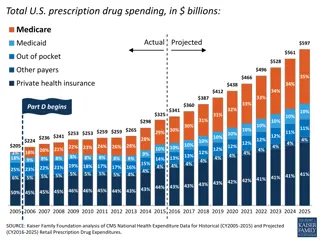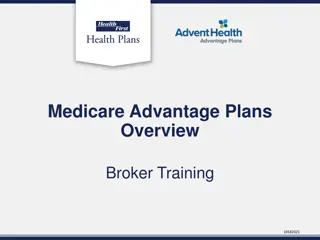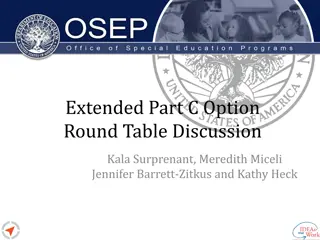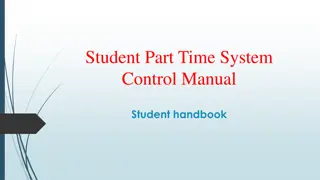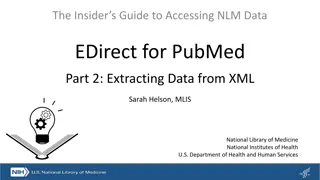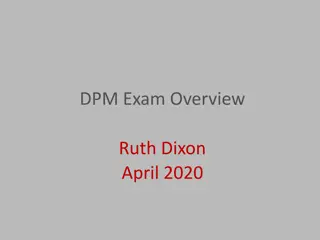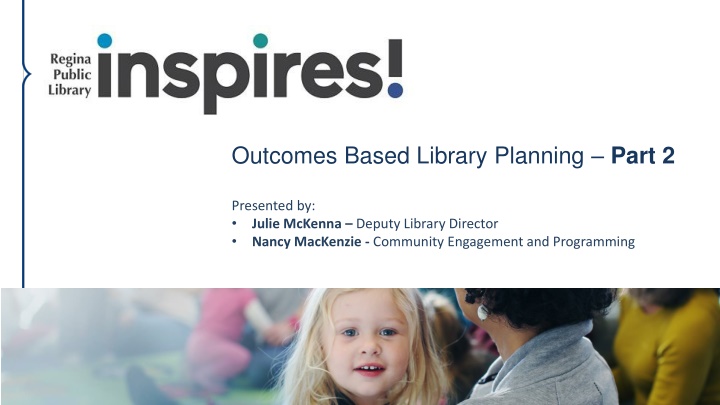
Outcomes-Based Library Planning and Community Engagement Strategies
Explore outcomes-based library planning and community engagement strategies presented by Julie McKenna and Nancy MacKenzie. Understand the importance of outcome-based frameworks, strategic planning, and the impact of services on customers and stakeholders. Learn about using outcomes-based frameworks, along with examples, to drive positive changes in library programs and services. Discover how the Regina Public Library inspires customer and staff engagement through feedback and participation.
Download Presentation

Please find below an Image/Link to download the presentation.
The content on the website is provided AS IS for your information and personal use only. It may not be sold, licensed, or shared on other websites without obtaining consent from the author. If you encounter any issues during the download, it is possible that the publisher has removed the file from their server.
You are allowed to download the files provided on this website for personal or commercial use, subject to the condition that they are used lawfully. All files are the property of their respective owners.
The content on the website is provided AS IS for your information and personal use only. It may not be sold, licensed, or shared on other websites without obtaining consent from the author.
E N D
Presentation Transcript
Outcomes Based Library Planning Part 2 Presented by: Julie McKenna Deputy Library Director Nancy MacKenzie - Community Engagement and Programming 1
Session Outcomes 1. Participants will understand RPL s outcome based planning journey to date 2. Participants will know why an outcomes based framework is essential for a customer centered culture 3. Participants will learn about the tools we have used 2
Outcomes Framework What is this? Human centered understanding of needs and services Drives planning and measuring service experience Why did we choose this approach? Traditional numbers based reporting and decision-making Help our citizens, customers, staff, and political stakeholders understand the benefits of services and the risk of stopping support or funding How will we use this? Our management planning models at RPL already make way for this; we have done some successful work in this area in the past; our staff understand why this is important and timely 4
Using an Outcomes Based Framework Concept Definition Example Program/Service What the library does Summer learning Inputs Resources the library devotes to a program/service Staff time, promotional material prizes Number of participants, program attendance, number of books read Outputs What the library produces Outcomes Beneficial changes that occur because of the library s program Reading at grade level, success in school, graduation, continuing education Impacts Long-term or indirect positive effects of the outcomes Love of reading and learning; entertainment, etc. 5
Outcomes https://reginapubliclibrary.sharepoint.com/:v:/s/MarketingandCom munications/EWHh51FjJIpOiIto8R50digBrfHQO81IJhQ65tPxdZR 1kg?e=K4ZZN3 6
RPL Inspires Customer, Staff Engagement Over 2,500 comments and suggestions from 991 participants 705 participants in the survey, of which 79 were potential customers 53 customer focus group participants 119 staff participants in the survey and 114 in staff workshops 7
Gap analysis - Programming Importance Experience Gap Programs and events for babies/preschoolers 3.09 3.49 .40 Film Theatre Programs 3.07 3.43 .36 Dunlop Art Gallery exhibitions 2.86 3.16 .30 Programs and events for school aged children 3.22 3.33 .11 Programs and events for adults 3.22 3.32 .10 Programs and events for families 3.14 3.23 .09 Programs and events for seniors 3.22 3.17 -.05 Programs and events for teens 3.03 2.86 -.17 10
Outcome Teams Terms of Reference Composition of Teams The Tools Service canvas Program Logic Models 11
Tools Service Canvas Name of New Collection: Story Bags What is the problem, gap or issue, goal? URL of eResource/Database: Describe the service: How does the service benefit our customers? Who are the target group/customers? How is it being addressed today? Would there be duplication? What other products duplicate this service that are not offered by RPL? How will we measure success? Who are our key partners? What are the key channels we could use to market the service? Website tie-in What resources are needed to make this proposed Collection/Service possible? What issues do we need to address (include issues of access in RPL s inclusive environment? Budget: 12
Tools Service Canvas What is the problem, gap or issue, goal? Describe the service? How does the service benefit our customers? Who are the target group/customers? How is it being addressed today? Would there be duplication? What other products duplicate this service that are not offered by RPL? How will we measure success? Who are our key partners? What resources are need to make this proposed Collection/Service possible? What issues need to be addressed? Budget? 13
Tools Program Logic Models Used for design, planning, communication, evaluation, & learning Shaping Outcomes: Making a Difference in Libraries and Museums Outcomes Based Planning and Evaluation (OBPE) Model http://www.shapingoutcomes.org/ Rubin, Rhea Joyce, Demonstrating Results: Using Outcome Measurement in Your Library. Chicago: ALA Editions, 2006 14
Mission Statement 4 Pillars 1. Free and open access to resources 2. Community space where people and ideas meet 3. Programs and services that support reading, curiosity, and learning 4. Community opportunities that complement and strengthen the public library offering 16
Mission Statement 4 Pillars 1. Free and open access to resources 2. Community space where people and ideas meet 3. Programs and services that support reading, curiosity, and learning 4. Community opportunities that complement and strengthen the public library offering 18
2. Community Space where People and Ideas Meet GOALS 19
Getting the Work Done Operational Plans Performance Planning and Review launched new in 2019 Internal communication Board reporting Community reporting Team projects big cross functional changes 22
Teams Activating Central Inclusion Reading Truth and Reconciliation 23
Evaluation From the customer s perspective Continuous iterative loop = Continuous learning & improvement Understand needs Design Deliver Evaluate Quantitative Qualitative 24
Session Outcomes 1. Participants will understand RPL s outcome based planning journey to date 2. Participants will know why outcomes based framework is essential for a customer centered culture 3. Participants will learn about tools that RPL tools have been beneficial 26
Outcomes Based Library Planning Part 2 jmckenna@reginalibrary.ca nmackenzie@reginalibrary.ca 27

![❤[READ]❤ Robotic Exploration of the Solar System: Part I: The Golden Age 1957-19](/thumb/21623/read-robotic-exploration-of-the-solar-system-part-i-the-golden-age-1957-19.jpg)
